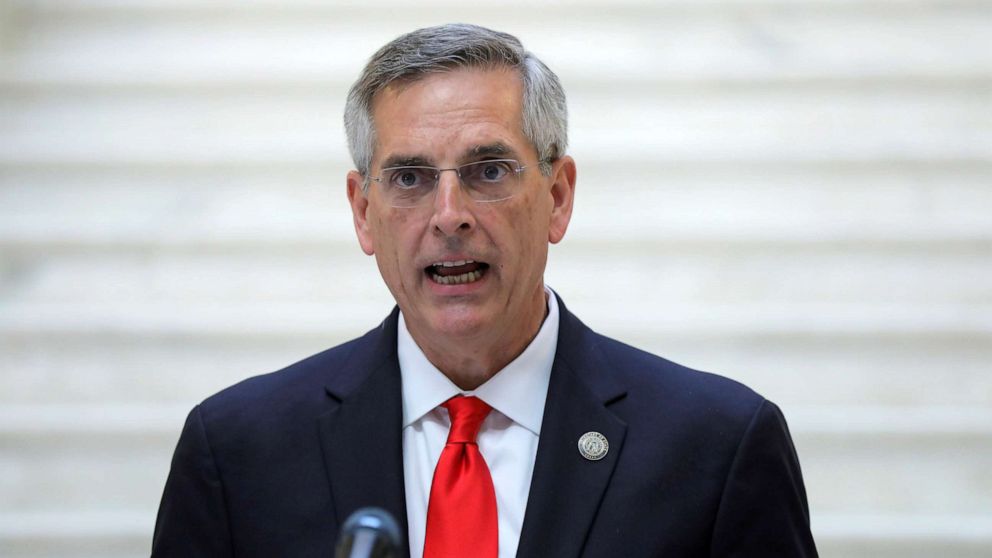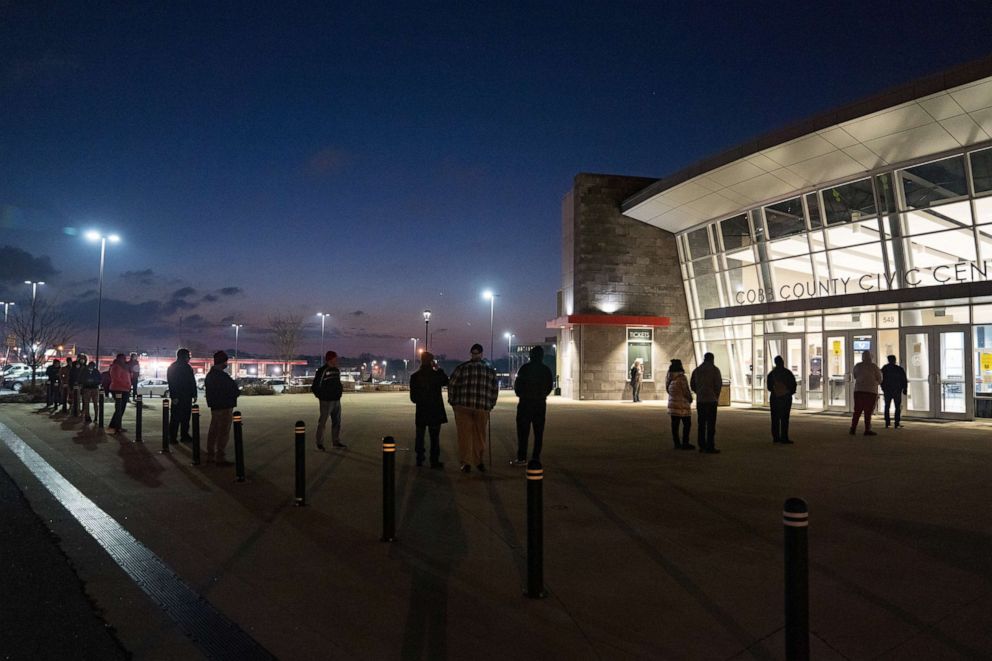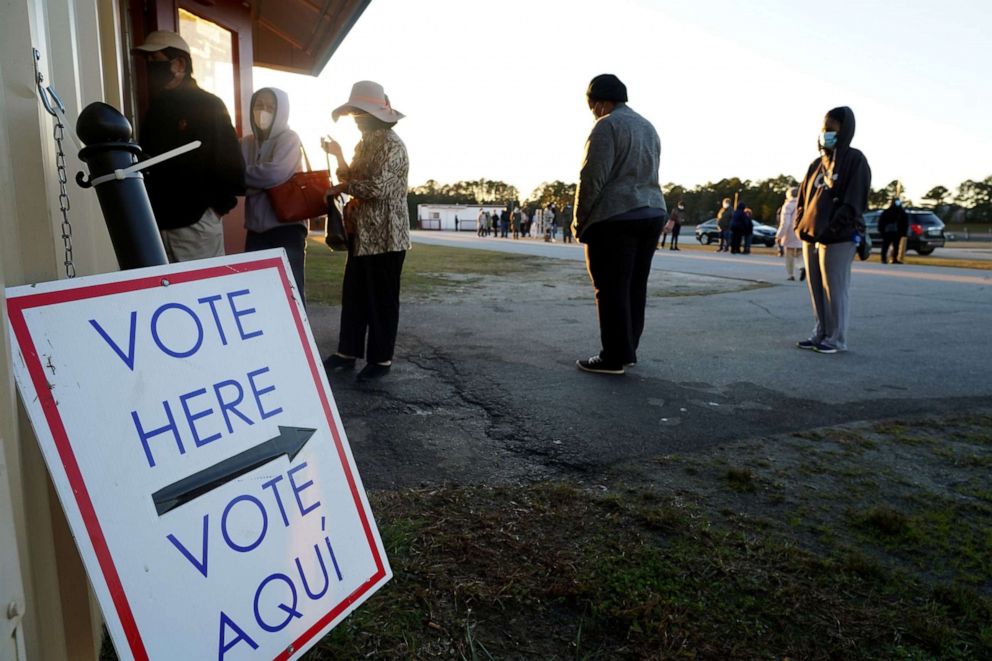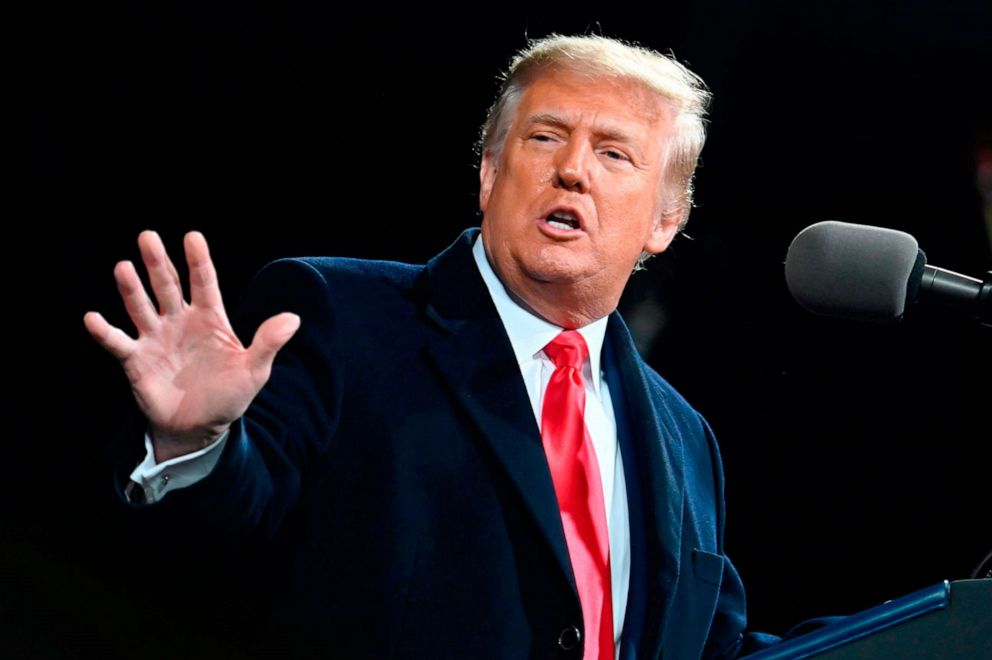佐治亚州国务卿办公室正式启动了对前总统唐纳德·特朗普(Donald Trump)给州选举官员打电话的调查。在乔·拜登(Joe Biden)总统的险胜获得两次认证后,特朗普在电话中寻求帮助,以推翻选举结果。
此前,一名法学教授提出了一系列正式投诉,指控特朗普在这些电话中违反了法律,这是对特朗普试图推翻该州选举结果的首次正式调查。
“国务卿办公室调查收到的投诉,”国务卿布拉德·拉芬伯格办公室发言人沃尔特·琼斯说。“调查是事实调查和行政性质的。任何进一步的法律努力将留给总检察长。”
琼斯在给美国广播公司新闻部的一份证实调查的初步声明中说,调查是由州选举委员会进行的,该委员会是拉芬伯格办公室的一部分。琼斯后来澄清说,国务卿办公室将进行调查。

特朗普在12月份的一次持续审计中首次致电佐治亚州官员,他要求拉芬伯格办公室的一名首席调查员"找出骗局"据一位知情人士透露,告诉他们,他们将因此成为“民族英雄”。在1月2日的另一次电话中,特朗普反复强调要求拉芬伯格“找到”根据美国广播公司新闻获得的电话录音,准确的票数是11,780票,他必须在桃州获胜。
一旦调查结束,委员会将投票决定是否将刑事案件移交给州检察长或地区检察官。
富尔顿县最高检察官、地区检察官法尼·威利斯(Fani Willis)形容特朗普-拉芬伯格的电话“令人不安”,在电话首次公开后的一份声明中表示,如果选举官员将此案提交给她,她将积极追查。
威利斯在1月4日的一份声明中说:“正如我去年向富尔顿县选民承诺的那样,作为地区检察官,我将毫无畏惧或偏袒地执行法律。”“任何人在我的管辖范围内犯下违反佐治亚州法律的重罪,都将被追究责任。一旦调查完成,这件事和所有事情一样,将由我们办公室根据事实和法律处理。”
她的同事说,她也可以自己决定进行调查。

前富尔顿县地区检察官高级助理、威利斯的同事约书亚·莫里森(Joshua D. Morrison)说:“我了解威利斯,她会尽快推进这项工作,但她不会为了满足任何人,无论是民主党人还是共和党人。”
莫里森说,他认为威利斯可能会调查特朗普的电话,尽管她的办公室没有正式表示准备这样做。
“我从来没有见过这样的事情,”莫里森说。“佐治亚州的人不喜欢被人欺负。所以我不认为特朗普会在这里找到一个友好的观众,如果他们真的决定继续这个案子的话。”
“我很高兴国务卿办公室已经对此事展开调查,这是我从1月初就一直呼吁的。我期待着审查他们的报告,并决定是否将此案提交给司法部长或地区检察官,”州选举委员会唯一的民主党人大卫·沃利告诉美国广播公司新闻。
国务卿办公室的调查可能需要几个月才能完成,但这标志着特朗普第二次弹劾审判前夕的一个重大发展。弹劾总统的唯一一篇文章指责他煽动1月6日在国会大厦发生的致命暴乱,简要提到了与国务卿的电话。
特朗普的弹劾律师在上周提交给众议院的一份简报中为特朗普在电话中的行为进行了辩护,并“否认特朗普总统在电话中的任何不当行为。”
特朗普的高级顾问杰森·米勒在周一发送给美国广播公司新闻的一份声明中表示,“特朗普总统、拉芬伯格国务卿和双方律师之间的预定通话没有任何不当或不愉快之处。如果拉芬伯格不想接到关于选举的电话,他就不应该竞选国务卿。电话被公开的唯一原因是因为拉芬伯格先生泄露了它,试图获得政治分数。”

特朗普1月6日在华盛顿特区的一次集会上发言时也为自己的呼吁进行了辩护。“我认为这是一次很好的谈话,”他说。“人们喜欢这种对话。”
“我不敢相信这家伙是共和党人,”特朗普说,指的是拉芬伯格。"他喜欢记录电话对话。"
乔治华盛顿大学法学教授约翰·班扎夫(John F. Banzhaf)周一提交的这份投诉称,特朗普可能违反了佐治亚州的三项法律,包括共谋实施选举欺诈、刑事教唆实施选举欺诈以及故意干扰选举职责的履行。
班扎夫在诉状中写道:“许多著名的知识渊博的律师得出结论……目前公开的证据已经满足了非常高的刑事标准,证明了犯罪的每一个要素,没有任何合理的怀疑。”这是他提交的第四份诉状。
拉芬伯格的办公室告诉美国广播公司新闻,任何人都可以向秘书办公室的选举部门提出投诉。如果投诉被认为可信,将进行调查。

这位发言人说,班扎夫通过秘书网站上的一个在线门户网站提出了投诉。
投诉通过电子邮件发送给了董事会、威利斯和佐治亚州司法部长克里斯·卡尔。班扎夫要求董事会通过一项动议,将刑事调查提交给卡尔和威利斯的办公室进行。
根据秘书网站上对其职责的描述,由五名成员组成的州选举委员会(Raffensperger)对“选举法、欺诈和违规行为”拥有调查权。如果发现违法行为,委员会必须向总检察长或相关地区检察官报告,后者负责进一步调查此事并提出起诉(如果适用)。
Georgia election officials formally launch investigation into Trump phone calls
The Georgia Secretary of State's office has formally launched an investigation into former President Donald Trump's phone calls to state election officials in which he sought help to overturn the results of the election after President Joe Biden's narrow victory was certified twice.
The investigation, which follows a series of formal complaints filed by a law professor alleging that Trump violated the law during those calls, marks the first formal investigation into Trump’s efforts to overturn the results of the election in the state.
“The Secretary of State’s office investigates complaints it receives,” said Walter Jones, a spokesperson for Secretary of State Brad Raffensperger's office. “The investigations are fact-finding and administrative in nature. Any further legal efforts will be left to the Attorney General.”
In an initial statement given to ABC News confirming the investigation, Jones said the investigation was being conducted by the State Election Board, which is part of Raffensperger's office. Jones later clarified that the Secretary of State's office would be conducting the investigation.
In Trump’s first call to Georgia officials, made in December amid an ongoing audit, he had asked a chief investigator in Raffensperger’s office to "find the fraud," telling them they would be a "national hero" for it, according to an individual familiar with the matter. In another call on Jan. 2, Trump repeatedly demanded that Raffensperger "find" the exact number of votes -- 11,780 -- he needed to be the victor in the Peach State, according to a recording of the call obtained by ABC News.
Once the investigation is finished, the board will vote whether or not to send a criminal referral to the state attorney general or district attorney.
Fulton County’s top prosecutor, District Attorney Fani Willis, has described the Trump-Raffensperger call as “disturbing,” saying in a statement after the calls first became public that if election officials refer the case to her, she’ll pursue it aggressively.
"As I promised Fulton County voters last year, as District Attorney, I will enforce the law without fear or favor," Willis said in a Jan. 4 statement. "Anyone who commits a felony violation of Georgia law in my jurisdiction will be held accountable. Once the investigation is complete, this matter, like all matters, will be handled by our office based on the facts and the law."
She could also decide on her own to pursue a probe, her associates said.
"I know D.A. Willis, and she will move it as fast as possible, but she’s not going to move it forward just to satisfy anyone, Democrat or Republican," said Joshua D. Morrison, former senior assistant Fulton County district attorney and Willis colleague.
Morrison said he believes it is likely Willis will investigate the Trump calls, even though her office has given no official indication that it is preparing to do so.
"I have never seen anything like this," Morrison said of the call. "And people in Georgia don’t like to be messed with. So I don’t think Trump is going to find a friendly audience here if they do decide to go forward on this case."
"I am very happy the Secretary of State's office has opened an investigation into this matter, as I have been calling for since early January. I look forward to reviewing their report and deciding whether to refer the case to the Attorney General or District Attorney," David Worley, the lone Democrat on the State Election Board, told ABC News.
Investigations by the secretary of state's office can take months to complete, but it marks a major development on the eve of Trump’s second impeachment trial. The single article of impeachment against the president, which accuses him of inciting the deadly riot at the Capitol on Jan. 6, briefly mentions the phone call with the secretary.
Trump’s impeachment lawyers defended Trump’s actions on the call in a brief submitted to the House the last week and “denied that President Trump acted improperly in that telephone call in any way.”
In a statement sent to ABC News on Monday, Jason Miller, Trump's senior adviser, said, "There was nothing improper or untoward about a scheduled call between President Trump, Secretary Raffensperger and lawyers on both sides. If Mr. Raffensperger didn’t want to receive calls about the election, he shouldn’t have run for Secretary of State. And the only reason the call became public was because Mr. Raffensperger leaked it in an attempt to score political points.”
Trump also defended his call while speaking at a rally in D.C. on Jan. 6. "I thought it was a great conversation," he said. "People loved that the conversation."
"I can't believe this guy is a Republican," Trump said, referring to Raffensperger. "He loves recording telephone conversations."
The complaint, which was filed Monday by George Washington University Law Professor John F. Banzhaf, alleges Trump may have violated three Georgia state laws, including conspiracy to commit election fraud, criminal solicitation to commit election fraud, and intentional interference with performance of election duties.
“Many prominent and knowledgeable attorneys have concluded … that the evidence which is now currently and publicly available already meets the very high criminal standard of proving each and every element of the crimes beyond any reasonable doubt,” Banzhaf wrote in the complaint, which was his fourth one submitted.
Anyone is able to file a complaint with the elections division of the secretary’s office, Raffensperger's office told ABC News. If the complaint is deemed credible, it will be investigated.
Banzhaf filed the complaint through an online portal on the secretary’s website, the spokesperson said.
The emailed complaint was sent to the board, Willis and Georgia Attorney General Chris Carr. Banzhaf asked the board to adopt a motion to refer a criminal investigation to Carr and Willis’s offices to pursue.
The five-member State Election Board, which Raffensperger sits on, has investigatory power over “election laws and frauds and irregularities,” according to a description of its duties on the secretary’s website. If legal violations are discovered, the board must report them to the attorney general or relevant district attorney, who is then responsible for further investigating the matter and prosecution, if applicable.






